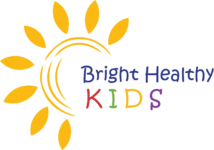Any trip to the drugstore shows an enormous number of cough and cold medicines. By one count, there are over 800 different products. How can you make sense of this? When you understand the drugs used, it is actually very simple! There are only 4 different medicines used, and here they are.
Expectorant
An expectorant is supposed to make mucous thinner, which makes it easier to cough up and helps it drain from the nose and sinuses as well. There is only one expectorant on the market, guaifenesin. This is the only ingredient in plain Robitussin® and Mucinex®. It also comes in some prescription cough and cold medicines. Many experts feel that guaifenesin does not really work as an expectorant and does very little at all; others feel that it probably does help to thin mucous some. It is a safe drug with few side effects and can be used in children 2 years and older. There is no known or FDA approved dose in children less than 2 years of age.
Decongestant
Decongestants work by decreasing mucous production in the nose and thus decreasing nasal congestion. This can also help a runny nose and post-nasal drainage. Decongestants are not recommended for use in children less than 2 years of age. Studies show that they have no effect at this age, and side effects can be harmful or fatal. In older children, they can be moderately effective. Sometimes they make kids hyper or keep them awake.
The main decongestant is pseudoephedrine (Sudafed), which until 2006 was the decongestant in virtually every product. Pseudoephedrine is moderately effective in children ages 2 years and up, and is relatively safe at this age as well. Some infants have died when taking pseudoephedrine, and it is usually not recommended in children less than 2 years old. There is also no known safe, effective or approved dose in children less than 2 years of age.
Because pseudoephedrine is used to make methamphetamine, the federal government restricted its sale in 2006 to behind the pharmacy counter and a limited dose per customer per month. Because of this restriction, most products are replacing pseudoephedrine with phenylephrine. Unfortunately, this decongestant is far less studied in its oral form in both adults and children. It may not be as effective. There is also no known safe or effective dose in children less than 2 years old; this has not stopped most companies, however, from marketing this product as infant drops for children as young as 1 month old.
Cough Suppressant
Cough suppressants act on the brain to reduce the cough reflex. Many experts feel that it is harmful to stop the cough reflex since it is the bodys way of getting mucous out of the airway and throat. They feel that a cough should only be treated if it interferes with sleep or activity, and even then it should be treated with caution.
Dextromethorphan (DM) is really the only over-the-counter cough medication. It is a derivative of codeine and acts in much the same way. It should not be used in children under the age of 2 since it can suppress breathing. It is moderately effective at treating coughs. Delsym is a long-acting form of DM.
The antihistamine diphenhydramine (Benadryl) is sometimes marketed as a cough medicine, and it perhaps has a slight effect on the cough itself. It does make people sleepy, however, and this is perhaps why it seems to help. Though it is not really a cough medicine, some companies unfortunately are marketing this drug as cough strips for toddlers and children, and sometimes parents dont realize what drug they are actually giving. It has not been shown to work for as a cough medicine in children and there is no reason to use it for a cough; it is more likely just sedating the child, which can be dangerous.
Antihistamine
An allergy medicine for colds? Thats right. Antihistamines are used for colds because of their side effects only; neither allergies nor the chemical histamine play any role in colds. The older antihistamines have a side effect of drying up mucous. This can help a runny nose but can sometimes make congestion thicker and worse. Diphenhydramine is sometimes used, as discussed above under cough suppressants. The most common ones in cold medicines are chlorpheniramine and brompheniramine. These can also make your child sleepy or have the opposite effect and make them hyperactive.
Fever reducer/pain reliever
Occasionally, acetaminophen (Tylenol) or ibuprofen (Advil, Motrin) is included in a cough and cold medicine. While this is fine, sometimes parents do not realize it and then give their child the medicine separately as well, which may cause a dangerous overdose. Be sure you know whether or not acetaminophen or ibuprofen is included in the cough and cold medicine you are using, and be sure that if you do buy one of these products, that you and everyone caring for the child is aware that the cough & cold medicine contains the fever medicine as well.
Summary
- Cough and cold medicines do not work in children less than 2 years old and can have serious side effects.
- They may help relieve symptoms in older children for several hours.
- Coughing is the bodys natural, protective reflex and should not be suppressed too much. Any cough can be treated with guaifenesin in children ages 2 and up.
A dry cough that interferes with sleep or school or coughing spasms causing chest pain can be treated with DM. Milder coughs may be treated with DM as well; DM can be used in children ages 2 and up. - Antihistamines treat allergies, not colds. They may help a very runny nose from a cold, but in general should not be used for colds.
Effective treatments to help your child feel better
- Saline spray or nose drops and cool mist humidifiers can help with thick congestion, especially in young children.
- Vapor patches or rubs can help in older children.
- Warm fluids, especially chicken soup, can help with cough and congestion. Infants over 4 months old can drink warm apple juice.
- Warm baths or showers can help nasal congestion and often make your child feel better. Your child may also benefit from steaming up the bathroom and breathing the steam and humidity.
- Children should blow their noses to remove mucous loosened by any of these methods. Use a soft rubber bulb syringe in younger children to remove mucous.
- Children ages 1 to 4 years old can use to 1 tsp of corn syrup to soothe a cough.
- Children over the age of 4 years can suck on hard candy or cough drops for cough or sore throat.
- Drink plenty of fluids.
- Acetaminophen or ibuprofen is effective for fever, sore throat, headache and body aches.
References
Smith, S.M., Schroeder, K., Fahey, T., 2014. Over-the-counter (OTC) medications for acute cough in children and adults in community settings. Cochrane Database Syst Rev 11, CD001831. doi:10.1002/14651858.CD001831.pub5
Drugs, C. on, 1997. Use of Codeine- and Dextromethorphan-Containing Cough Remedies in Children. Pediatrics 99, 918–920. doi:10.1542/peds.99.6.918


